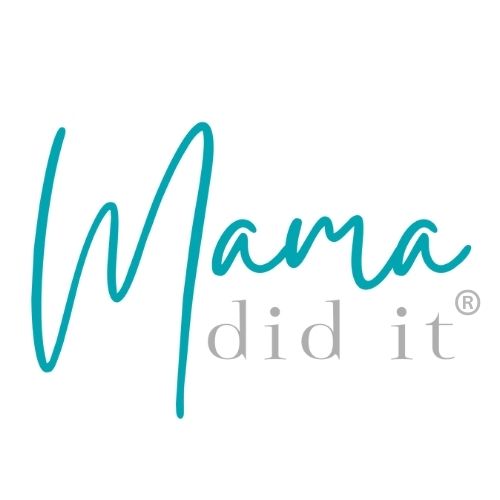Postpartum Week Two brings with it a few changes. Here’s your timeline through postpartum recovery this week, from a postpartum nurse.
You’ve made it through the first week of the postpartum period. Congratulations! It’s no walk in the park. How are you doing? Do you feel surprised by what you have experienced? Is it harder than you thought it would be? Or maybe you were well prepared. Whatever you feel, I hope you are proud of yourself. Here’s what you can expect in your postpartum week two.
You should begin to see improvements in how you feel and recover each week. Many new mothers find the second week postpartum to be easier than the first. You have a better handle on postpartum care and usually breastfeeding is beginning to get smoother.
I recommend having a support team in place for the first three weeks postpartum. Don’t hesitate to still be asking for help with household chores. It may be helpful to make a to-do list for those who would like to help. Many people feel they want to help but simply don’t know how. For example, a list with things such as take the dog for a walk, fold the laundry, make a meal, or run the dishwasher gives helpers some goals.
These first few weeks of postpartum need to be focused on your own physical recovery and caring and bonding with your newborn baby.
Postpartum Week Two
I was at the beginning of my postpartum week two when I decided I should go to WalMart. I was moving well at home and thought, “I’ll be fine in the store.” I pushed my buggy to the back of the store and realized I had made a big mistake. My perineum began to ache. I turned around, leaned on my buggy for support, and went back home. Don’t be like me!
Your goals this week are to rest when needed, take a nap at least once when your baby does, take a shower, and pick one day to get dressed in comfy but cute clothes and put on mascara. It sounds funny I know, but taking just one day to feel more put together can do wonders for your emotions. And don’t forget to snack!
Vaginal Bleeding:
With a vaginal birth, you can expect to bleed from four to six weeks. Most women lean more toward the four-week time frame, but it can certainly be until six. This bleeding is called lochia and will be bright red in the first couple of weeks. By week two, you will be able to use the heavy flow sanitary pads, though you may still want to opt for overnight pads at night or postpartum diapers. The disposable diapers and postpartum disposable underwear are so convenient during this time for your postpartum bleeding.
Your blood flow will likely be lighter this week. Blood clots will be minimal to none. If you ever start soaking a pad in an hour, you may be experiencing postpartum hemorrhage. Call your healthcare provider right away. Vaginal discharge may come and go throughout the day. You may even skip a day, only to find it returns the next day. This is normal.
If you had a c-section, bleeding may be very light this week. C-section patients usually bleed for two to three weeks and may not bleed heavily at all.
Perineal Care:
You can continue the sitz bath every day if you wish, but if it is no longer comforting, there is no reason to use it anymore. Ice packs may still feel soothing. What feels best is right for you! Perineal pain can be soothed with hot or cold, so what works can be highly personal.
Using toilet paper to wipe may feel more comfortable this week, though you should continue to use your perineal squirt bottle until you no longer feel sore. It’s still important to keep your vagina and bottom clean and dry to help prevent infection.
Bowel Movement: Pooing and Peeing
Your pelvic floor muscles are beginning to recover and you may notice better urinary continence this week. You are probably able to empty your bladder completely on the first try, and it probably doesn’t burn anymore when you start to pee. Urinary incontinence (leaking pee) may continue for several weeks, especially if you sneeze or cough. This usually begins to recover on its own.
Continue taking a stool softener until your pooping regularly once more. By now, you have experienced your first bowel movement. Your goal is still to not strain when going. Stay hydrated and eat a healthy diet full of whole grains and vegetables. You will probably still need witch hazel pads or hemorrhoid cream for your bottom.

Exercise:
I personally still do not recommend exercise at postpartum week two. The most important thing is to allow your body to continue to rest and heal and to take care of your baby. Introducing activities or even kegel exercises too early can make diastasis recti (the separation of the abdomen) worse. Avoid heavy lifting over ten pounds for the first six weeks. Older children can still sit on your lap. You just don’t need to bend over to pick them up.
Your energy levels will vary this week. You may have some days that you feel great, and others that you feel really tired. All of this is normal.
Emotions:
On postpartum week two, our hormone levels are still shifting quite a bit. We may begin experiencing night sweats. Keeping an extra pair of pajamas nearby can allow quick changes. You may also notice vigilance over your baby, like startling awake at every sound they make. This is a response to the brain plasticity (changes in neuro pathways) taking place after birth. It gets better in time.
It’s still quite normal to feel the baby blues. This can be feelings of sadness, anxiety, dependence, or helplessness. It also may be intense crying episodes though you aren’t sure why. This is all thanks to hormone changes, tiredness, and lifestyle changes.
Your emotional health is important. Give the baby blues about one more week to level out. If it has gotten much worse or feels like it’s too much to handle, this could be postpartum depression. If this is the case, go ahead and give your doctor a call.
Cesarean birth:
My c-section mamas find themselves moving around much better by week two. Many of them can manage without pain medication, though occasionally you may still need it. If you had steri-strips on your incision, be sure to remove these. They can get yucky smelling and hinder healing if left on too long. Still no tub baths for the next several weeks. Shower only. If you find getting up and down is still challenging, an abdominal binder can give you the support you need.
Pain:
Though you may still experience some uterine contractions, they will be much more mild this week. You should rarely need Motrin for cramping now, though you may need it occasionally for pain in your bottom if you had a vaginal delivery. Using heat packs for cramping can be helpful! If you are still feeling discomfort in your perineum due to a tear or episiotomy, rotating ice packs with Dermoplast (blue lid) can help. Never use these two together because it can cause damage to the tissue. Always pick one or the other. Here’s more on peri-pain management if you need it.
Breastfeeding
I often give the advice to new moms, “If you can make it through the first two weeks of breastfeeding, you can make it as long as you want.” This is usually true. Learning to breastfeed comes with many peaks and valleys. By now, you have finished navigating breast engorgement. Your mature milk should have come in. You may still have sore breasts as your body learns how to handle your new milk supply.
If you are having trouble with cracked or bleeding nipples, do call a lactation consultant. This often means your baby needs a better latch, and they can help with that. Breastfeeding may hurt for the first few seconds, but should never hurt the entire nursing session. If you feel concerned about your milk supply, here are some evidence-based ways to boost it.
Follow Up Visits:
You probably won’t be seeing your healthcare provider for several weeks, unless you had a c-section and need your staples removed. The standard visit is at six weeks postpartum unless you are having an issue. Though I do recommend a pelvic floor physical therapist, they usually ask you to wait to see them until six weeks as well. Basically, the only appointments you have this week are possibly a pediatric visit.
Postpartum Week Two
I hope this has helped give you some “normal” guidelines for your postpartum week two. Give yourself lots of grace as you are transforming in ways you never have before. Postpartum is a metamorphosis that affects our spirit, soul, and body. It’s a journey into becoming mama. I wish you all the best!
See you next week for Postpartum Week Three
